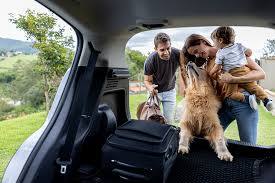Understanding Pet Travel Preparation
A methodical approach, including creating a checklist of necessary documents, supplies, and stopovers, can reduce last-minute anxiety and help maintain calmness in case of unexpected changes. Familiarizing pets with their travel arrangements in advance ensures a smoother trip, as they thrive on routine and can be more flexible in case of unforeseen delays or cancellations.
Preparing a pet for long-distance travel goes far beyond making a reservation. It requires thinking about every detail that could impact your pet’s happiness, health, and safety during the journey. First, many owners should research rules about traveling with animals, understanding that standards can change by country, state, and transportation provider. Many pet parents choose to get professional assistance from industry experts, such as Air Pets International, who are familiar with the intricacies of pet relocation. Early planning is also a stress reducer; it allows enough time to address vet visits, vaccination updates, and practice sessions with travel crates. For peace of mind, it’s best to start planning weeks or even months in advance of your move.
Thoughtful veterinary design solutions, such as pet‑friendly carriers, calming interior materials, and ergonomic ventilation, play a big role in reducing travel anxiety and helping animals stay comfortable for long journeys.
Choosing the Right Transport Method
Choosing the right travel method for your pet can greatly impact their experience. Air travel can be fast but challenging due to noise, pressure changes, and separation. Airlines also have varying pet policies, so checking regulations before booking is essential. Certain breeds, like pugs or bulldogs, may have restrictions. Train or car travel offers flexibility but requires careful attention to restraint, heat levels, and hydration. Some train lines are becoming pet-friendly, but space is limited. Understanding your pet’s physical and emotional needs helps you choose the best method. Consult a veterinarian or a pet travel specialist for personalized advice.
Health and Safety Considerations
Prioritize your pet’s health and safety during travel by scheduling a pre-travel exam with a veterinarian. During the visit, discuss parasite prevention, motion sickness remedies, and chronic health issues. Consider additional documentation or medication for pets with ongoing medical conditions. Choose the right carrier with comfortable crates, secure latches, clear identification tags, and airline approval. Secure your pet in a seatbelt harness or the back seat during road trips. Never leave pets unattended in cars; even brief exposure can be fatal. These precautions will protect your animal companions during any trip.
READ MORE : The Future of Advertising: How Digital LED Screens Are Transforming Public Spaces?
Managing Pet Stress and Anxiety
Travel-related stress can be alleviated by recognizing triggers like loud noises, crowds, or separation from humans. Please set up a carrier in a quiet area and reward pets for exploring at their own pace. Bring favorite toys, beds, or blankets to create a “home base” wherever you go. Natural strategies and veterinary advice can help calm nerves, with some pets responding well to anxiety wraps or pheromone sprays. Feed small snacks before departure to reduce motion sickness. Maintaining routine, talking to pets, and minimizing changes during travel can also help reduce stress.
Packing for Your Pet
To pack your pet for travel, ensure a spacious, well-ventilated carrier or crate, a secure collar with updated tags and microchip, sufficient food and water, medical supplies, cleaning essentials like waste bags and litter trays, and comfort items like toys and blankets. Pack a photo of your pet for reunion in unfamiliar places and double-check regulatory requirements for carriers and supplies from your chosen transport provider to avoid last-minute snags at check-in.
Settling Your Pet After Arrival
Upon arrival, it’s crucial to help your pet settle in by unpacking their belongings, setting up their bed, toys, and food in a quiet area, and allowing them to explore their new space at their own pace. Maintaining familiar feeding and walking times can provide reassurance. Observe your pet for temporary symptoms like lethargy or decreased appetite, and if they persist, consult a local veterinarian. Most pets adjust quickly, making travel a positive experience.

